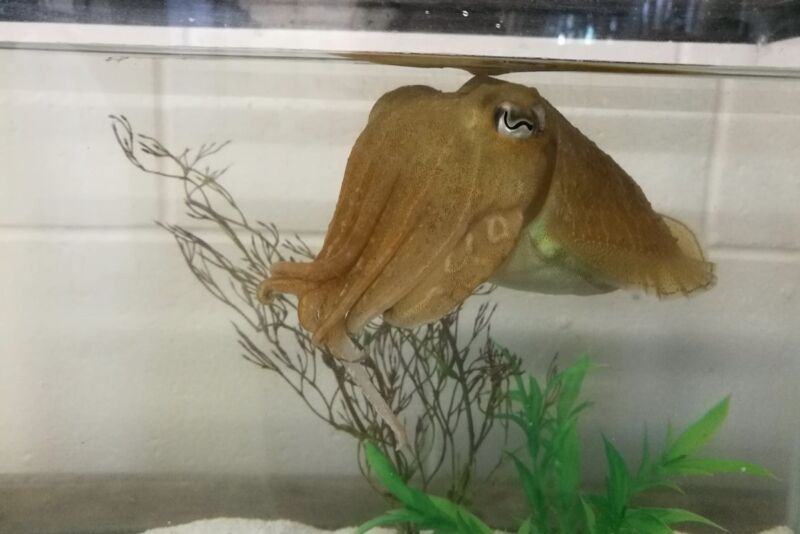Cuttlefish can pass the marshmallow test

Enlarge / A common cuttlefish, Sepia officinalis, in the Marine Resources Center at the Marine Biological Laboratory, Woods Hole, MA. A new study finds the cuttlefish can delay gratification-a key feature of the famous "marshmallow test." (credit: Alexandra Schnell)
Certain species show a remarkable ability to delay gratification, notably great apes, corvids, and parrots, while other species do not (such as rodents, chickens, and pigeons.) Add the cuttlefish to the former category.
Scientists administered an adapted version of the Stanford marshmallow test to cuttlefish and found that the cephalopods could delay gratification-that is, wait a bit for preferred prey rather than settling for a less desirable prey. Cuttlefish also performed better in a subsequent learning test, according to a new paper published in the journal Proceedings of the Royal Society B. It's the first time such a link between self-control and intelligence has been found in a non-mammalian species.
As we've previously reported, the late Walter Mischel's landmark behavioral study involved 600 kids between the ages of four and six, all culled from Stanford University's Bing Nursery School. He would give each child a marshmallow and give them the option of eating it immediately if they chose. But if they could wait 15 minutes, they would get a second marshmallow as a reward. Then Mischel would leave the room, and a hidden video camera would tape what happened next.
Read 12 remaining paragraphs | Comments